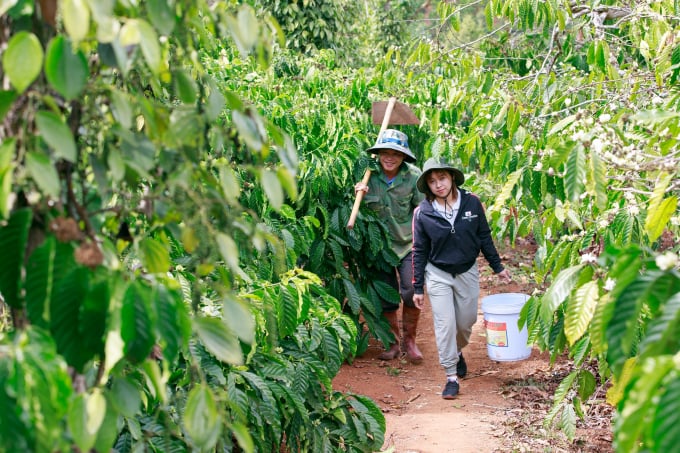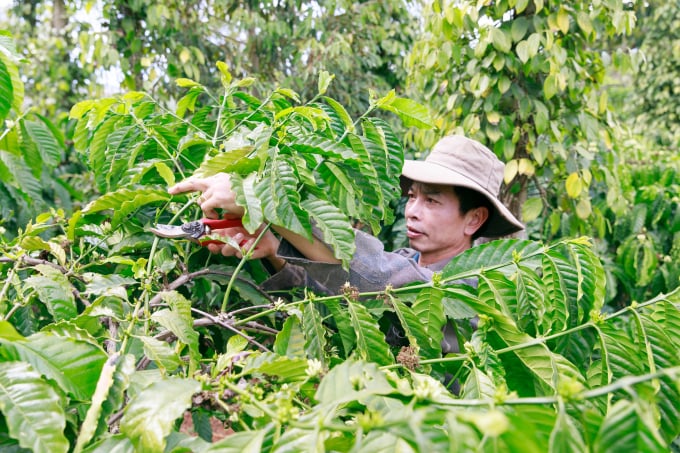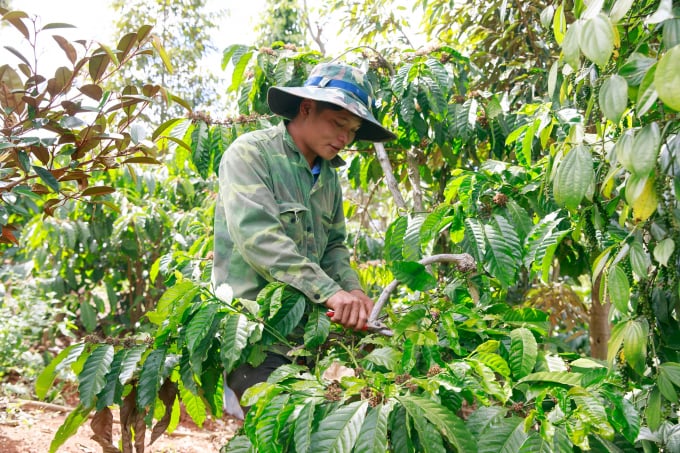November 25, 2025 | 22:44 GMT +7
November 25, 2025 | 22:44 GMT +7
Hotline: 0913.378.918
November 25, 2025 | 22:44 GMT +7
Hotline: 0913.378.918

The revised code is “from the coffee community for the coffee community”. Photo: TL.
Following a broad international public consultation the Global Coffee Platform has published the Coffee Sustainability Reference Code, which provides a foundation to support the primary principles of sustainable coffee production.
This reference code offers a common language to enable farmers, producers organizations, their business partners, donors, NGOs, financial institutions and governments to more collaboratively and effectively advance their coffee sustainability efforts.
The Coffee Sustainability Reference Code provides sustainability stakeholders with a simplified and fit-for-purpose framework to foster better understanding of principles that support baseline sustainable coffee production. It addresses ongoing challenges in the coffee sustainability landscape as well as key emerging concerns such as climate change, diversity, equity and inclusion.

The Coffee Sustainability Reference Code helps to enhance and align the activities of the whole industry already underway so that more coffee farmers can be reached. Photo: TL.
According to Annette Pensel, GCP Executive Director, the revised code is “from the coffee communi ty for the coffee community” and ultimately seeks to advance farmers’ economic prosperity, social well-being, and the conservation of nature.
“The Coffee Sustainability Reference Code helps to enhance and align the activities of the whole industry already underway so that more coffee farmers can be reached, and to encourage all coffee production to be sustainable.”
For Gelkha Buitrago, GCP Director Programs and Corporate Partnerships, we can collectively undertake strong concerted action to support a more sustainable and resilient future for farmers and the sector overall, but “to do so, we need a shared understanding of baseline sustainability upon which other innovations at farm level and beyond can be built”.
Centered on the three dimensions of economic prosperity, social well-being, and environmental stewardship, the Coffee Sustainability Reference Code outlines 12 principles, broken down into practices and expected results that describe baseline sustainability for coffee production and primary processing.
The code also defines five critical practices: elimination of the worst forms of child labour, elimination of forced labour, no deforestation, no use of prohibited pesticides, and the newest addition, continuous improvement.

GCP believes the Coffee Sustainability Reference Code will serve the coffee sector to better align activities. Photo: TL.
“While the Coffee Sustainability Reference Code addresses the beginning of the supply chain, with farmers on the ground, downstream actors are expected to share the responsibility for sustainability,” says Ms. Pensel. “This includes supporting and incentivising the efforts of coffee farmers to introduce, maintain, and go beyond these baseline principles across all dimensions, as well as promoting equitable trading and sourcing practices.”
As custodian of the code, GCP believes the Coffee Sustainability Reference Code will serve the coffee sector to better align activities, inspire continuous improvement, and accelerate individual and collective action.
“Coffee sustainability is a shared responsibility and as a common language, together we can use this reference code and advance towards a thriving, sustainable coffee sector for generations to come.”
Translated by Thuc An

(VAN) Deputy Minister Nguyen Quoc Tri emphasized the determination to prevent violations at CoP20, sharing enforcement results and commitments to strengthen cooperation with the international community in the coming period.

(VAN) In addition to strengthening the relationship between schools and enterprises, the Aus4Skills project expands opportunities for female students and people with disabilities to work in the transport and logistics sector.

(VAN) Nghe An is preparing policy, technical, and resource steps to participate in the forest carbon credit market.
/2025/11/25/1648-2-110733_532.jpg)
(VAN) From 2011 to 2023, Ca Mau province lost approximately 6,200 ha of coastal land and protection forests due to erosion, threatening many residential areas, infrastructure facilities, and production zones.

(VAN) Quang Ngai holds strong potential for carbon credits but needs a clear legal and policy framework to secure sustainable revenue from this resource.

(VAN) With its diverse ecosystem, Phu Quoc National Park plays a vital role in environmental protection and biodiversity conservation and serves as the core zone of the Kien Giang World Biosphere Reserve.

(VAN) Cooperation activities under the Aus4Skills program focus on: logistics professional development, competency-based training and assessment (CBTA), leadership innovation, and digitalization.